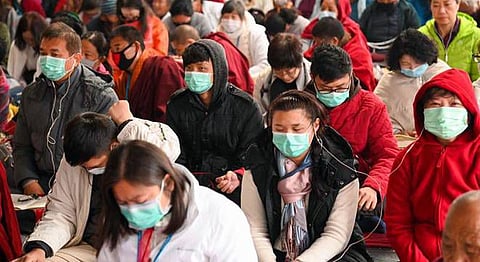
- HOMEGROWN WORLD
- #HGCREATORS
- #HGEXPLORE
- #HGVOICES
- #HGSHOP
- CAREERS
- ABOUT US
- CONTACT US

Coronavirus, or as the WHO has officially given the name COVID-19 is creating havoc across the world. Apart from China, the virus has now spread across 60 countries with the death toll reaching
3,000 in China, and surpassing 100,000 globally. Reports, research and analysis show that the Coronavirus is closely linked to viruses in bats, however, there are several intermediary hosts in between until humans came in contact with the virus.
Out of the 585 food sample studies conducted in the Wuhan market, 33 turned out to be positive for COVID-19, thus implying the transmission of the virus from animals to humans. It is unlikely that the Wuhan market was the origin of the virus, however, it did play a significant role in amplifying and spreading the effects. Trevor Bedford, a bioinformatics specialist at the University of Washington and Fred Hutchinson Cancer Research Center states that there was a single human contact to the virus after which it spread rapidly amongst other humans.
Research closely associated Coronavirus with SARS (Sudden Acute Respiratory Syndrome) and MERS (Middle East Respiratory Syndrome). These two diseases in the past have caused respiratory and gastrointestinal problems, while some cases were serious, most of them were merely a common cold and flu. COVID-19 similarly affects a person based on their immunity system and where the virus latches on to. If the virus enters through the person’s nose or throat it is less likely to be dangerous. However, latching on to the lungs and cells can be dangerous, as it slowly breaks down the immunity system.
A major problem with COVID-19 is that the virus remains in incubation for 14 days inside the body thus it is hard to detect in initial stages. Even after a few days, symptoms majorly include a runny nose, fever, cold and cough all of which do not point towards a deadly disease. In the worst cases, the patients suffer from pneumonia: most of the time with proper medication and treatment these symptoms can fade, but sometimes the virus can lead to multiple organ failure and death. Simple precautions like covering your mouth then you sneeze and washing your hands regularly can keep you safe. Scientists say that the virus doesn’t survive for very long in the air, therefore through healthy habits amplification of the virus can be prevented.
According to BBC, of March 06, India has reported 31 cases, with an increasing majority of them in the past few days. The number includes 16 Italian tourists. The BBC further quotes Health Minister Harsh Vardhan in stating that, “more than 600,000 people had been tested for the virus at the country’s 21 airports and 77 seaports, according to Mr Vardhan. More than 27,000 people living in five states near the border with neighbouring Nepal have been put under surveillance and a million people tested in the area, he said. And India is setting up a screening lab in Iran to test returnees.”
COVID-19 has been declared an International Health Emergency by the WHO to help lower and middle-income countries, by educating and increasing surveillance. As diseases spread rapidly in such areas, the WHO clearly mentions that they have confidence in China’s healthcare and impressive measures to stop the virus from spreading. Transportation to and from Wuhan has been restricted and people have been sent back to their homeland in order to limit the spread of disease. 99% of the patients have emerged from China only, therefore the possibility of the virus travelling across countries is unlikely unless the patient has been to China or in contact with another infected patient.
Researchers are working towards creating a vaccine for COVID-19. It is hoped that the fast-paced research is going to prevent further spreading of the virus. However, it’s always better to be safe are than sorry, thus simple precautions can always be taken. Check out WHO’s advice for the public here.
For the minute-to-minute update, we suggest you follow news chains on ET , NYT and Al Jazeera, amongst other trustworthy sources.
If you liked this article, we suggest you read:
